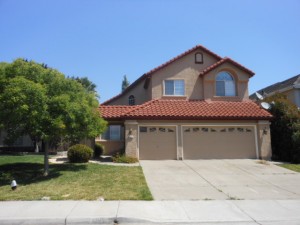3 Most Important Points About California Landlord Tenant Law
 You don’t have to be a lawyer to rent a home in California. Best Property Management reminds all of our Contra Costa County renters that some 99% of landlord-tenant disputes in California get settled easily and far outside of the arena of the law.
You don’t have to be a lawyer to rent a home in California. Best Property Management reminds all of our Contra Costa County renters that some 99% of landlord-tenant disputes in California get settled easily and far outside of the arena of the law.
Landlord-Tenant law is pretty straightforward, easy to understand and generally something that both parties should be able to interpret and understand easily. That said, you’ll feel better understanding the basic points outlined below. They’re based on the California Department of Consumer Affairs’ Landlord Book. Read the following, and you’ll be essentially on the same footing with landlords renting residential housing, anywhere in California.
There may be a very few cases where you really will need legal counsel, and this short intro shouldn’t be understood as a substitute for legal advice. It’s not complete, but it is accurate. Remember too, compliance is always your own responsibility, and some local and municipal regulations can be just slightly different, depending on where you’re renting.
1) Security Deposits
Easily the most frequent area of dispute, it’s worth a moment to understand the relevant statutes – before you pay any deposit. Landlords may only charge, at a maximum, two months of rent for an unfurnished apartment or home and three months if the unit is furnished.
They may not require a bank account for the return of the deposit, though they may ask you to deposit into one. And this is the big one:
The deadline for returning your security deposit is still 21 days after you move out.
2) Reasons Security Deposit Refund Are Not Issued
There are really only four. In all of them, the landlord needs to provide a written itemized statement as to how much was charged and to clearly state the reasons. These can include:
1) Unpaid Rent: This is the easiest one to avoid. Just make sure your payments have all been made.
2) Cleaning: To avoid this charge, the unit needs to be vacated in the same state of cleanliness as when you moved in.
3) Damages: That landlord can only deduct for damages above “normal wear and tear.” They can’t charge you for scuff marks but for structural or furniture damages, you should expect a printed statement of exactly what your being charged for. To avoid the charges, make the repairs before you move out.
4) For other replacements: These need to be spelled out specifically in the rental agreement or lease. Your landlord should point them out at the time of signing, but these charges can include the cost of new locks and keys or any furnishings that you’ve used and that need to be replaced.
3) Rental Payments
If you cover all of the above, then you already eliminate most of the conflict areas between landlords and tenants.
Most leases will state that rental payments are due at the beginning of each month. Late Fees need to be “reasonable” and they need to be explicitly described in the lease. That’s true statewide.
The most important thing, especially for first-time renters, or for those moving in from another state, is to carefully read the written lease. In general you want to rent from a landlord or property management company who welcomes all of your questions, and who is generous in answering and explaining everything in detail. Nearly every remaining misunderstanding or area of conflict can be avoided if you follow this advice each time you go to sign a new lease.



